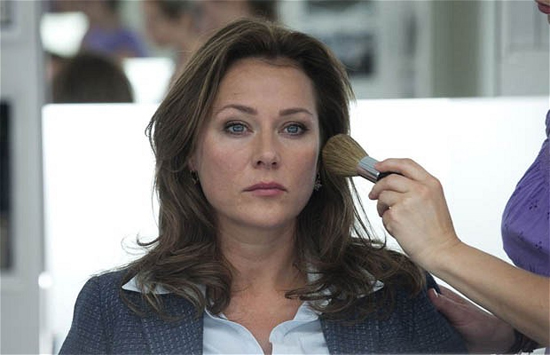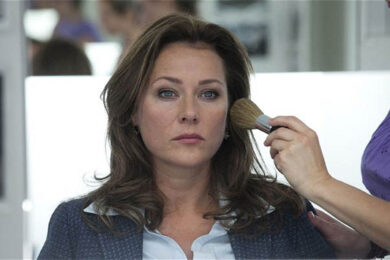Listen. You and your impeccably cultured friends are going to hate me for this, but I really need to get it off my chest. The problem is, well, I just never liked The Killing. Of course, it is well acted, quality craftsmanship and all that. But still, you know – yawn. To be frank, I gave up after one episode. Midsomer Murders with subtitles, or what? And this was even before that weird knitwear-porn cult took off. It’s just a sodding jumper. Get over it.
And if I’m honest, it’s not just The Killing. I’ve become allergic to the boom in bloated DVD box sets of upmarket TV over the last decade. As these overhyped shows get longer, my attention span seems to get shorter. I lasted two seasons of The Sopranos, one of The West Wing, five episodes of Lost, two of Mad Men. And yes, banish me from the middlebrow liberal chattering classes forever, but I never got The Wire either. Soap operas for people who believe they are too smart for soaps? Sorry, but life is too short. Literally.
So it has been a bizarre experience to find myself totally ambushed and seduced by the three-disc first season of Borgen, 10 hours of glossy political drama about Denmark’s first female prime minister. Made by DR, the same state-funded public network as The Killing, this classy export recently made a similar splash on BBC Four. Back in Denmark, ratings peaked at two million – a staggering 40 per cent of the population. A second series has already aired domestically, with a third on the way. The inevitable US remake is also pending – ironically, since the show is often lazily described as a Danish version of The West Wing.
Small-L liberal in politics and small-C conservative in presentation, Borgen is a slick and cinematic affair compared to The Killing. It has a much brighter palette and a much lower body count – three deaths occur in the first series, all marginal characters, all by natural causes. Unlike most Danish film and television, it does not convey the queasy sensation that something is rotten in the state of Denmark. Instead it dares to grapple with the daily political dilemmas of the real country familiar to most Danes: a Nordic quasi-paradise of beautiful people, fresh air, clean streets, a generous welfare system and one of highest standards of living on the planet. Smug Scandinavian bastards.
Of course, 10 hours of Toytown palace intrigue in a real-life Legoland could easily have been soul-crushingly dull – and yes, it is initially laughable that Copenhagen seems to function almost like a parish council, with the entire national media apparently run by two or three journalists, and the entire parliament by half a dozen politicians. But the genius of Borgen, like that of Denmark itself, is how quickly it moves from quaint to engrossing, and then from engrossing to addictive.
A major selling point is the character of Prime Minister Birgitte Nyborg herself, a moderate centrist struggling to lead a fragile coalition government with arrogant male cohorts on both right and left. Played by stage veteran Sidse Babett Knudsen, this is a generous, layered, novelistic portrait of a woman fighting her corner in a patriarchal world. Pilou Asbæk fills the main male eye-candy role as Nyborg’s emotionally damaged spin doctor Kasper Juul, but Borgen is dominated by strong female roles – notably Birgitte Hjort Sørensen as the scoop-hungry sex-bomb news anchor Katrine Fønsmark.
It undoubtedly helps that Knudsen herself has a warm, matriarchal sexiness that appeals to male and female viewers alike. Her handsome wardrobe of fitted business suits may also be a factor here. And, erm, her luxuriant mane of lustrous chestnut hair. Which looks like it would smell of hot chocolate. Oh yes.
The script’s pointed emphasis on Nyborg’s clothes and appearance is telling – she is an attractive forty-something mother, but not overly glamorised, her brittle confidence sometimes punctured by condescending male colleagues and frank family comments about her waistline. But unlike most screen politicians, she also has a lusty and tender sexual relationship with her academic husband, played by The Killing 2 veteran Mikael Birkkjaer. At first, anyway. Inevitably, fault-lines appear as the pressures of power turn their marriage into another kind of strained coalition partnership.
Another fascinating strand of Borgen is how it predicted the real-life rise of Denmark’s first female prime minister Helle Thorning-Schmidt, a centre-left Social Democrat who came to power last October, ending a decade of conservative rule. Like her fictional alter ego, Thorning-Schmidt is a glamorous mother of two whose marriage to Stephen Kinnock, son of former British Labour leader Neil, has been dogged by tabloid scandal and confidential leaks from inside government. The parallels are purely accidental, as the series was written over a year before the election, but still striking.
Every episode begins with an ominous quote about power from heavyweight political bruisers like Machiavelli, Lenin, Mao and Churchill. But in truth, the dramatic detail is much more about back-room compromise and horse-trading realpolitik than ideological struggle – after all, Denmark is governed under a proportional representation system, so multi-party coalitions are the norm. This may be another reason why the show has struck an unexpectedly topical chord in Britain – both Cameron and Clegg are reportedly fans.
Nyborg’s constant juggling of favours and interests, private morals and public duties is one of the show’s more subtle pleasures. She begins as the kind of fictional politician that idealistic screenwriters love, a principled populist who goes off-message and speaks truth to power. In other words, a boring liberal’s wet dream. Thankfully, she is soon obliged to play a tougher game purely to survive among the seasoned sharks. By the end of the series, she is hardened more to back-stabbing than back-scratching.
But Borgen does not settle for that simplistic, over-familiar narrative arc from passionate idealism to jaded cynicism. Instead, it offers more realistic shades of grey, conflicted loyalties and muddled motives. For example, an episode about the Danish territory of Greenland being used for illegal CIA rendition flights take a sly left turn into a soul-searching reflection on Denmark’s own shameful colonial history in the Arctic north, complete with some stunning Attenborough-level scenery.
Another plotline, about a female minister being smeared by a misogynistic media over her sexual history, digresses from its righteous feminist trajectory when it emerges that the woman in question once slept with Nyborg’s husband. The personal becomes political, and vice versa. Nobody gets out of Borgen with entirely clean hands.
Ultimately, Borgen is a delicate balancing act. It never succumbs to the sanctimonious sentimentality that ultimately made The West Wing unwatchable, but nor does it embrace the weapons-grade contempt for career politicians that makes The Thick of It so cruelly funny. Yes, there are over-simplified issues and pantomime villains here, but politics itself is always presented as a complex, nuanced, painfully human business.
OK, I admit it – Borgen is essentially a deluxe soap opera. And yes, it panders shamelessly to my inner middlebrow chattering-class Eurosnob liberal. It even features some lavish items of quality knitwear that you and your impeccably cultured friends will probably find erotically arousing. I know I did.
But if you subscribe to the familiar cop-out conspiracy theory that all politicians are self-serving crooks, then Borgen may not be for you. Birgitte Nyborg, though never quite a flawless heroine, always stays the right side of sympathetic. Even as this first series closes on a dark cliffhanger finale, with her political integrity crumbling and her marriage in shreds, she maintains a plausible humanity. She has not yet become Michael Corleone at the end of The Godfather Part Two.
The message of Borgen is not that power corrupts, but power erodes. And when it does, which way do you turn without becoming a monster? This is not an exit. I can’t wait for Season Two.
Borgen is out now on DVD from Arrow Films



